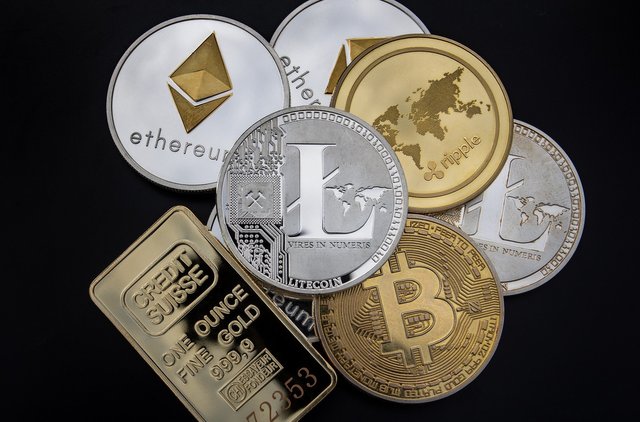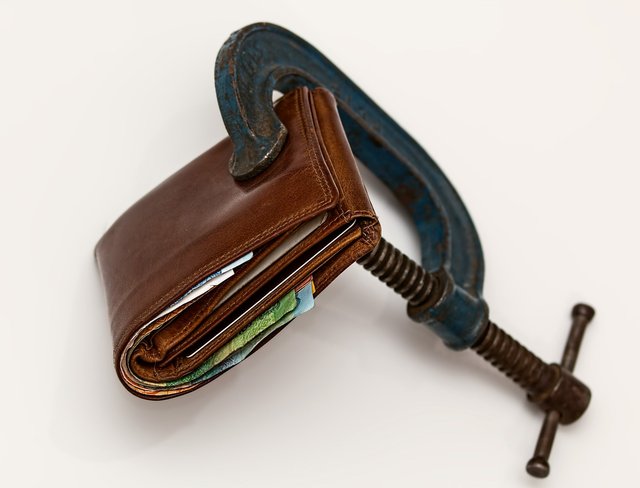
Since the time cryptocurrencies have made its way into the public domain, despite criticisms, it has significantly undergone growth in 2017, 2018. It transitioned from being an academic idea to digital reality with the inception of Bitcoin around 2009. This encrypted digital currency (managed by cryptography) has drawn several investors with its decentralized technology and many other features attributing to its popularity.
With the boom in the crypto market, the need for security is also something that grew simultaneously. And this is precisely why cryptocurrency wallet was brought in vogue. Through the advanced blockchain technology, cryptocurrencies could be sent or received without the involvement of anyone else except the two parties carrying out the transaction- this we all know by now. What is intriguing is that these virtual coins are stored in crypto wallets to ensure safety. It is always advisable to carry out these transactions through a crypto wallet since it ensures a safe digital space.
Interestingly, the cryptocurrency is not exactly stored in a wallet. What gets stored is a private key in the form of a secure code that will only be known to you and your wallet. This private key is meant to display the ownership of a public key, which is a digital code linked to an amount of currency.
To sum up, crypto wallet stores one’s public and private key, lets one receive and send coins, and at the same time, functions as a personal ledger. Therefore, whenever one needs to perform a transaction safely, one requires private keys to access wallets and authorize those transactions.
There are a variety of crypto wallets available for one to choose from. Basically, various wallets have various things to offer, such as user-friendly transactions, extra security and many more.
Desktop wallet, mobile wallet, web or online wallet, paper wallet, and hardware wallets are some of the cryptocurrency wallets.
Now whenever there is so much money, profits involved, factors such as risks, corruption, insecurity are bound to make its way as well. Moreover, here we are talking about a huge magnitude of money involved, and with each passing day, millions of people are flocking the world of cryptocurrencies. Coinbase, for instance, went on to add almost 2 million new clients over a span of just two months. Another massive electronic wallet named Blockchain.com witnessed a rise in the client base by 1.8 million within a few months.
In a business like this, that is perceived as thriving domains naturally; cybercriminals launch their target.
Hackers are highly intelligent and are always looking for ways to create new routes to access your data, and this is exactly why you should do everything to protect the private key.
Cybercriminals can access your funds which are stored alongside an internet connection through – Malware, Virus, Key logger, Phishing, and by accessing your device through a remote.
The phone-porting attack is one of the most popular strategies, wherein hackers keep track of social media. They pose as victims after getting all the required information and call up telephone providers. By tricking the provider, they take control of the telephone number, and log in to the victim’s wallet, reset the password.
Phishing attacks, Ponzi schemes, ransomware are other forms of cryptocurrency scams or frauds.
Given below are some of the best possible ways for you to ensure your wallet’s protection:
Protect Wallet- Look for malware in your device. Select a wallet with security measures intact. Go ahead and freely discriminate among the normal wallet providers and be sure to finalize on the best. See if the wallet uses encryption to secure the private keys. For instance, Corion provides a code package encrypting key data and safeguards from insider hacking.
Distribute currencies among multiple wallets– It is always recommended that you use at least two digital wallets to store. Use one for trading and transactions and opt the other to store savings. Remember to keep it in a secure place. For that, use a cold storage wallet. Store your backup of the private keys offline. Depending upon the number of crypto funds you have, distribute your currencies in more.
Keep a tab on your wallet transactions- Get notified (enable notifications through SMS, email) about any suspicious activity by setting up a monitoring tool on your wallet’s address.
Get rid of auto-updates for your wallet- Turn off auto-updates for apps pertaining to crypto. At times, in the garb of new versions, bugs are released. So, do not instantly click for the update; wait instead for a few days.
Do not opt for open Wi-Fi- Never go online connecting to public Wi-Fi if you have a device with wallet in it. At least be careful while doing so as your device might be prone to hacking.
No Phishing– Private keys get hacked through phishing scams. Through Google Ads or emails, phishing scams are quite frequently conducted. Never click on tempting phishing ads as it would install malware on your device. It is advisable to install an ad blocker in your browser to save yourself from malware-infected ads.
Double-check the address- The best way to do this is to send a micropayment as a verification first, and then once you are assured, go for larger payments to the verified address. Since there may be malicious programs that can copy your address, so, always double-check the address that you wish to send any payment to.
Remove all remote-access software- Never install remote-access software as it can overwrite all safety precautions are taken, such as 2FA.
Enable 2-factor authentication- Also known as 2-FA, it is a double authentication measure that will secure your wallet. Either by opting for biometric identification or a 6-digit code via the FreeOTP app for iOS and Android.
- See if there is an SSL security mark in the address window of the web browser. It is a secure site seal to make sure that the browsing is encrypted.
Now that you have gathered enough knowledge about a crypto wallet, how it works, how you can ensure it is protected, go ahead and use it mindfully.
Article brought to you by the MintDice Bitcoin Casino, where your funds are always kept safe! Originally posted on MintDice.


Super fantastic information.
Sir you are so grateful.
Downvoting a post can decrease pending rewards and make it less visible. Common reasons:
Submit
Sure thing, happy to help you stay safe on MintDice during these uncertain times.
Downvoting a post can decrease pending rewards and make it less visible. Common reasons:
Submit
I appreciate your working
Downvoting a post can decrease pending rewards and make it less visible. Common reasons:
Submit
You are welcome and we are just as happy to be putting out quality content for you.
Downvoting a post can decrease pending rewards and make it less visible. Common reasons:
Submit